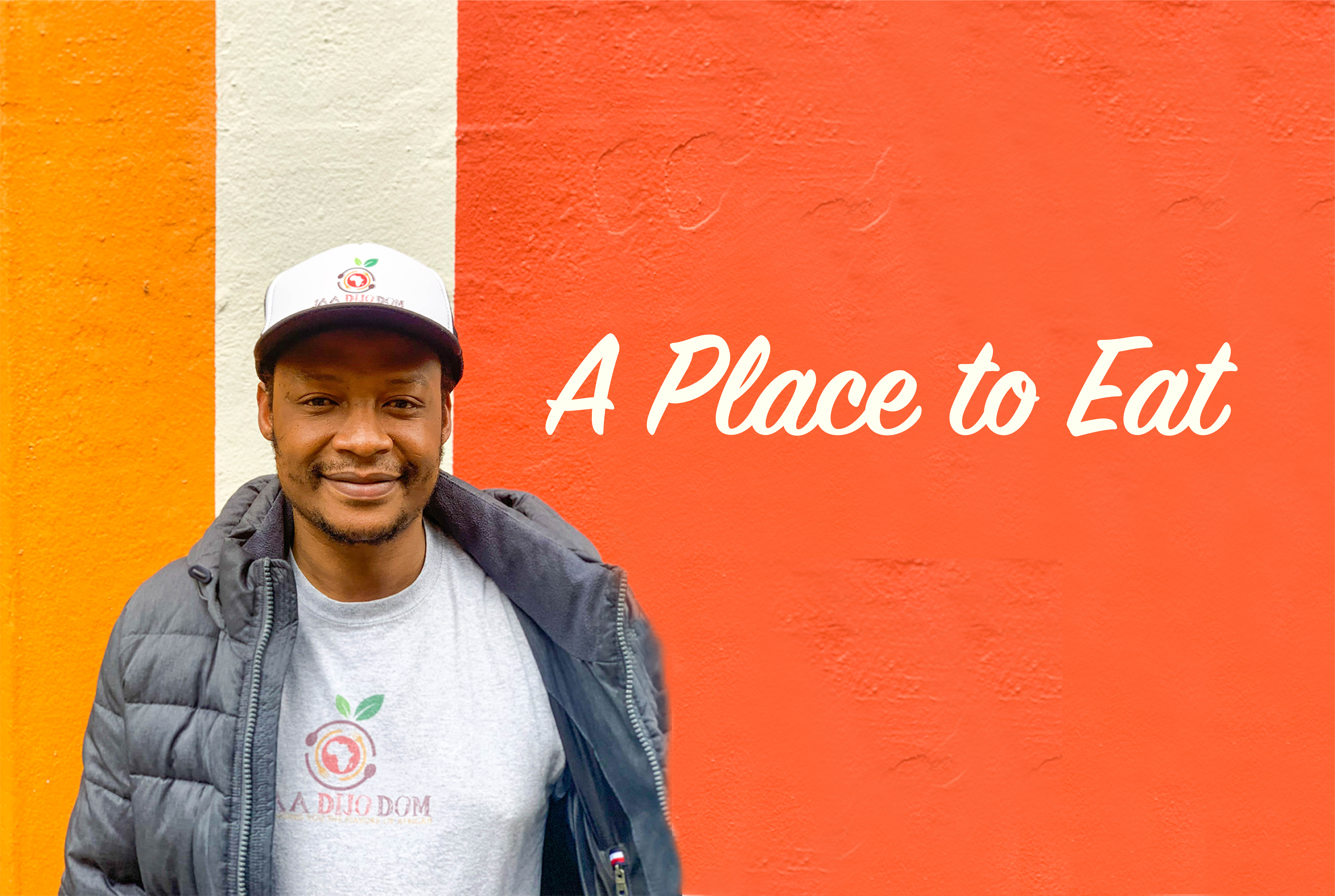When you meet Charles Chipengule for the first time you might notice a few subtle things: he dresses simply but with gentle flair, he has welcoming and seeking eyes, and he talks with a near-invisible smile on his lips. What’s so obvious you probably wouldn’t even register the fact–Charles Chipengule is a man. And yet, in his home country of Botswana, being a man is exactly what held him back from his dream: becoming a chef.
“In my country, ladies do all the cooking. The men are behind, cutting the trees and taking care of the animals,” said Chipengule. “You wouldn’t find a man in the kitchen. Even if you had the interest.”
After several attempts to open up a breakfast stall in his hometown, Chipengule realized he needed reinforcements if he was going to succeed. He hired women to work for him, so customers wouldn’t be turned off by a man doing the cooking. After a year, he said it was time to call it quits.
“It didn’t go well, so I closed up. I sold my car, bought a ticket [to the U.S.] and I left,” he said.
Chipengule immigrated to the United States, hoping that he would finally be taken seriously behind the stove. His chances were certainly higher as a man here in this country–77% of American chefs are men.
Eight years later, he’s now the head chef and owner of Jaa Dijo Dom, an all-African-cuisine catering company based in Brooklyn.
Life in America, however, came with new setbacks for Chipengule. Even though he had a successful career as an engineer in Botswana, he was unable to land an engineering job in the U.S. without going back to school. So, he started washing dishes.
“I started out working at a Pizza store,” Chipengule said. “Then, for awhile, I moved from restaurant to restaurant.”
While washing dishes, Chipengule said he learned how to cook in a variety of styles. From Italian to Mexican to Indian, he gained a wide variety of culinary experience–but there was one thing still lacking: “There was no African cuisine… in all the various places that I worked. So I decided I wanted to go on this journey to teach people.”
The journey, he found, would be long and difficult. Chipengule first enrolled in cooking classes. Even though he had some experience with his own food stand in Africa, he was still lacking in many basic skills. In Botswana, no one would take the time to teach him because he was a man. After his back-to-basics journey, he acquired the licensing necessary to start a business. However, he yet again hit a roadblock: how to find the money to get started.
“I had to get my own money most of the time,” he said. “Nobody really wanted to deal with me, because I was an immigrant. I had to prove myself more [than other chefs] over time to show people I could do it.”
Chipengule decided to take a chance on himself. He spent years saving up and opened Jaa Dijo Dom in 2017. “Jaa Dijo” means “to eat,” in his native Setswana language. “Dom,” means “Place” in Slovak, Chipengule’s wife’s mother tongue. Put together, Jaa Dijo Dom embodies the manifestation of a dream decades in the making–Chipengule had literally opened “A Place to Eat.” But it still wasn’t an easy road.
“The first two years were horrible,” he said. “I had to do most of the work on my own. I did deliveries and I would take the train by myself, even when I was serving 100 or 300 people. I just couldn’t afford an Uber.”
Another barrier: people lacked familiarity with African cuisine.
“One of the biggest things we do is teach people about the food. It’s not that people don’t like it, but many people have just not had it presented to them,” Chipengule said. “They don’t know where to get it even if they wanted to. Every time I come in, I have to tell people where [the food] comes from, what it is, how it’s cooked, what the spices are, what time of the day this meal is eaten, the ingredients, everything.”
Chipengule doesn’t seem to mind teaching people. He said he started the business as an opportunity to educate, not only Americans, but other Africans about different styles of home continent cuisine.
“I created this company to serve all African cuisine. I’m from Botswana, which is down South. I had never tasted the food from up North before,” he said. “I had to learn all the other cuisines from Senegal, Morocco, North, West, East, South — it wasn’t easy. I did it for African and American people. We cover almost all of Africa, so we are not specified to one region.”
Chipengule said he feels like the business is finally settling in and his company is expanding. He has a van for deliveries, a strong and growing staff, and he’s excited to see where Jaa Dijo Dom will head next.
We at Cater2.me are proud to partner with Charles as he grows his business and brings authentic African food to NYC. To learn more about how to bring African food to your office, talk to one of our catering experts!











